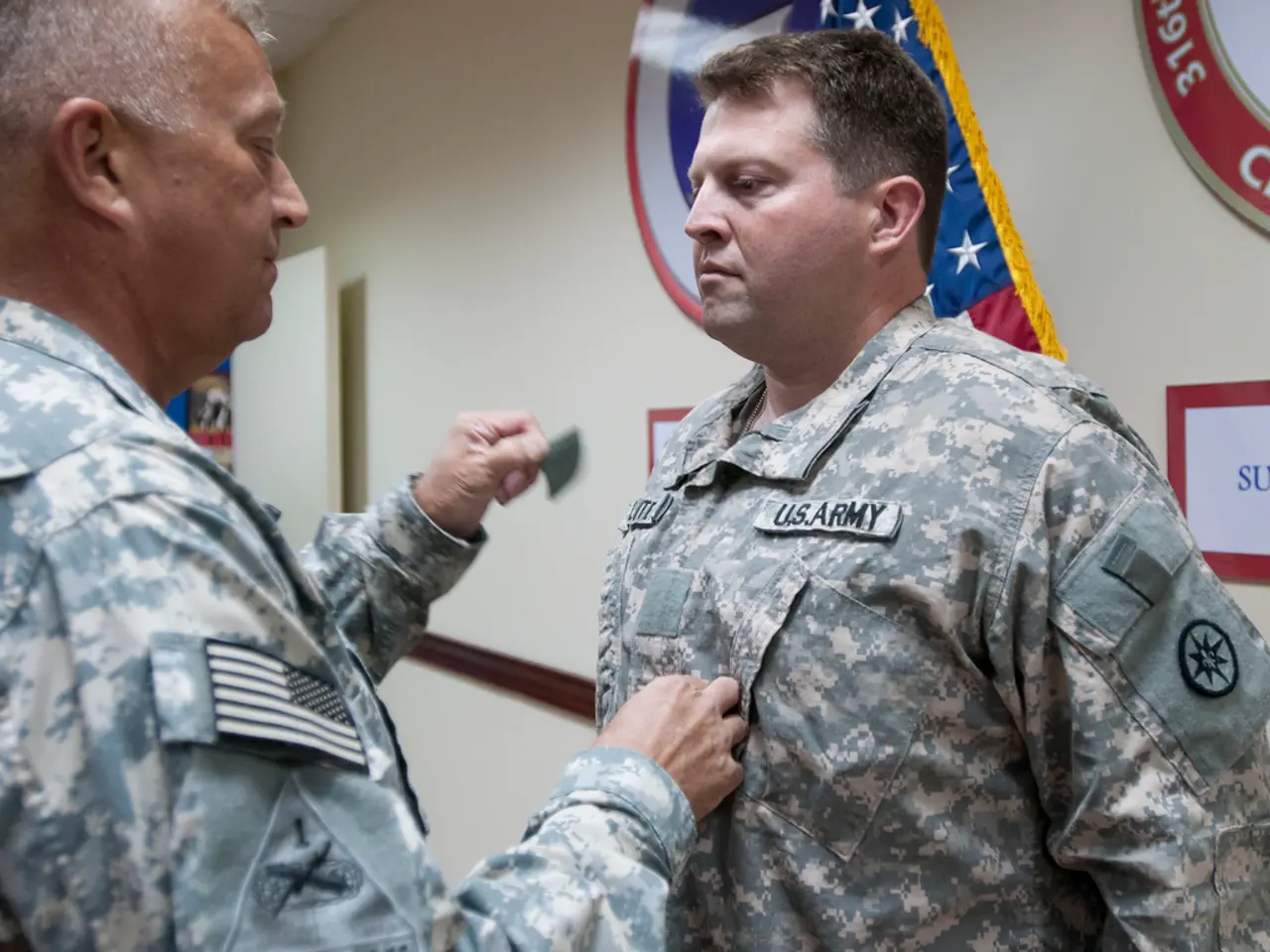Air Force Careers Focused on Medical Officership in the United States
The US Air Force is home to a diverse group of dedicated professionals who balance the demanding roles of military service and healthcare provision. Known as Medical Officers, these individuals face challenges such as adapting to evolving medical technologies and practices, and maintaining a delicate balance between their military and medical responsibilities.
Specialized Fields and Outstanding Achievements
Medical Officers in the US Air Force specialize in various fields, including Flight Surgeons, Critical Care Nurses, and Medical Laboratory Officers. Notable achievements of these medical professionals include Colonel Dr. Reggie Edgerton's contributions to neuromuscular research and Brigadier General Dr. Scott Brown's advancements in aerospace medicine.
Flight Surgeons provide essential care to aircrew members, ensuring their health and readiness for flight duties. Meanwhile, Critical Care Nurses deliver specialized care to critically ill or injured patients in military medical facilities. Medical Laboratory Officers oversee and conduct laboratory tests to support medical diagnosis and treatment.
Supportive Environment and Professional Development
The US Air Force provides a supportive environment for Medical Officers, fostering their growth through mentoring programs, health initiatives, and resources aimed at enhancing professional development. This support enables Medical Officers to thrive in their roles and make a meaningful impact on the health and readiness of USAF personnel.
The Air Force also invests heavily in the training and education of its medical personnel, ensuring that Medical Officers remain at the forefront of healthcare delivery and are well-positioned to adapt to emerging challenges. Career progression examples for Medical Officers range from advancing from Flight Surgeon roles to overseeing medical operations in different units, transitioning into roles like Critical Care Nurses, or becoming Medical Laboratory Officers.
Becoming a Medical Officer
To become a Medical Officer, candidates must possess a medical degree from an accredited institution, be licensed to practice medicine in the United States, meet commissioning requirements, and undergo specialized training depending on their chosen field.
Support Systems and Benefits
Support systems in place for Medical Officers include mentorship and wellness initiatives, which aim to create a supportive environment that fosters growth, resilience, and overall job satisfaction among its medical personnel. Medical Officers in the US Air Force enjoy benefits such as competitive salaries, comprehensive healthcare coverage, retirement plans, and education assistance programs.
A Promising Future
The future outlook for Medical Officer careers in the US Air Force is promising, with ongoing advancements in technology and healthcare shaping the landscape. The USAF continues to prioritize the well-being of its medical personnel, offering opportunities for professional growth and development within the organization.
Health and Wellness Initiatives focus on promoting the physical and mental health of Medical Officers, ensuring their overall well-being, and emphasizing the importance of self-care and resilience in demanding roles.
A Fulfilling Profession
Pursuing a career as a Medical Officer in the US Air Force offers a rewarding path filled with unique opportunities for professional growth and service to the nation. The diverse range of specialized fields and the rewarding nature of the job make it a fulfilling and honorable profession. Medical Officers have made significant contributions, including groundbreaking research, providing crucial medical support during humanitarian missions, and implementing innovative healthcare practices.
Read also:
- Apparition's Significance and its Delivered Messages - as discussed by Sensenmann
- Explored the Popular Health Assessment with a Queue of 100,000 Aspiring Participants - Here's My Unadulterated Opinion
- Hearing impairment condition: Recognizing symptoms and management approaches
- Exploring Recurring Actions in Mature Individuals: An Analysis of Persistent Actions in Adults' Daily Lives






